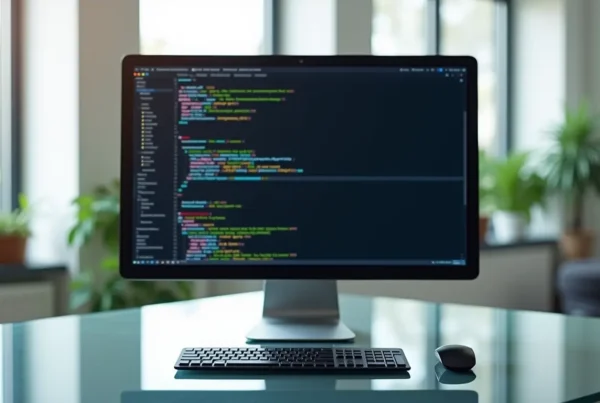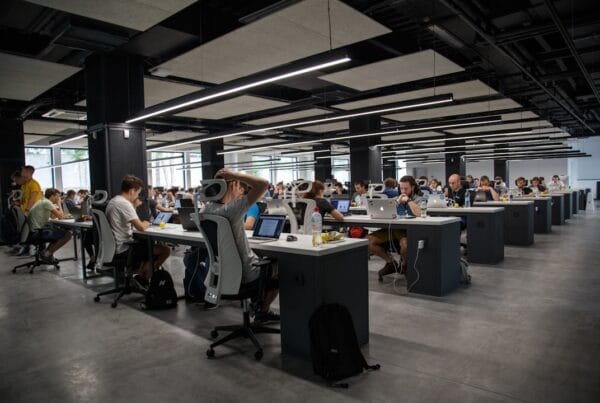In today’s construction industry, technology plays a central role in how general contractors manage projects, communicate with teams, and streamline their operations. From project management software to digital blueprints and drone-based site inspections, the adoption of digital tools has transformed the construction landscape. However, with the increased reliance on technology comes a heightened risk of cyber threats and the need for robust IT infrastructure. Here’s why general contractors need to prioritize IT and cybersecurity in their operations.
1. Protection of Sensitive Project Data
General contractors deal with a significant amount of sensitive information, including project plans, financial data, contracts, and personal details of clients and subcontractors. The use of digital tools means that this data is often stored and transmitted online, making it susceptible to cyber threats. If this data falls into the wrong hands, it could lead to devastating consequences such as financial loss, reputational damage, and even legal liabilities.
Implementing cybersecurity measures like data encryption, multi-factor authentication (MFA), and secure file-sharing protocols helps ensure that sensitive project data remains protected. IT support can assist contractors in establishing secure storage solutions and monitoring data access to prevent unauthorized breaches.
2. Ensuring Business Continuity
Construction projects are typically on tight schedules, with multiple stakeholders depending on the smooth flow of information and coordination. A cyber attack that disrupts access to critical project files or communication channels could cause significant delays, driving up costs and jeopardizing relationships with clients and subcontractors. Ransomware attacks, where malicious actors encrypt company data and demand a ransom for its release, have become increasingly common, especially targeting industries with tight timelines.
With reliable IT and cybersecurity practices, general contractors can establish data backup and recovery systems that ensure business continuity. By backing up project data to secure cloud storage, contractors can recover quickly from disruptions, minimize downtime, and keep projects on track.
3. Protection Against Phishing and Social Engineering Attacks
The construction industry is increasingly becoming a target for phishing attacks and social engineering. These attacks often involve cybercriminals posing as legitimate contacts, such as subcontractors or suppliers, to manipulate employees into revealing sensitive information or making unauthorized payments.
General contractors need cybersecurity training for employees to recognize these threats. IT experts can help create awareness programs to educate employees about common tactics used in phishing attacks and how to verify the authenticity of email communications. Implementing email filtering systems and anti-phishing software also provides an extra layer of defense against these types of cyber attacks.
4. Secure Communication and Collaboration
General contractors rely heavily on communication and collaboration between team members, clients, subcontractors, and suppliers. In a fast-paced environment where remote communication is common, there is a need to secure messaging platforms, video conferencing, and file-sharing tools.
IT solutions can help general contractors implement secure communication platforms that protect against eavesdropping and data breaches. Virtual private networks (VPNs) can be used to secure connections, especially when employees are accessing project data from offsite locations. Additionally, role-based access control (RBAC) can be established to ensure that sensitive information is only available to those who need it.
5. Compliance with Industry Regulations
General contractors may also be subject to various industry regulations that require certain levels of data protection, especially when working on government contracts or projects involving critical infrastructure. Failure to comply with these regulations can lead to fines, legal issues, and potential disqualification from future projects.
A well-defined IT and cybersecurity strategy helps contractors ensure compliance with these regulations. Partnering with an IT solutions provider that understands the industry ensures that contractors implement the required cybersecurity policies and maintain the necessary documentation to prove compliance.
6. Preventing Equipment and IoT-Related Attacks
The construction industry is seeing an increased adoption of smart devices and Internet of Things (IoT) technologies, such as GPS tracking for heavy machinery and sensors for monitoring site conditions. These technologies improve efficiency but also open new vulnerabilities. Hackers could potentially gain access to these devices and disrupt operations or even cause safety hazards.
IT professionals can help implement network segmentation and IoT-specific security measures to prevent unauthorized access to these connected devices. By securing both the IT network and IoT endpoints, general contractors can prevent cyber threats that could lead to costly disruptions or safety incidents.





